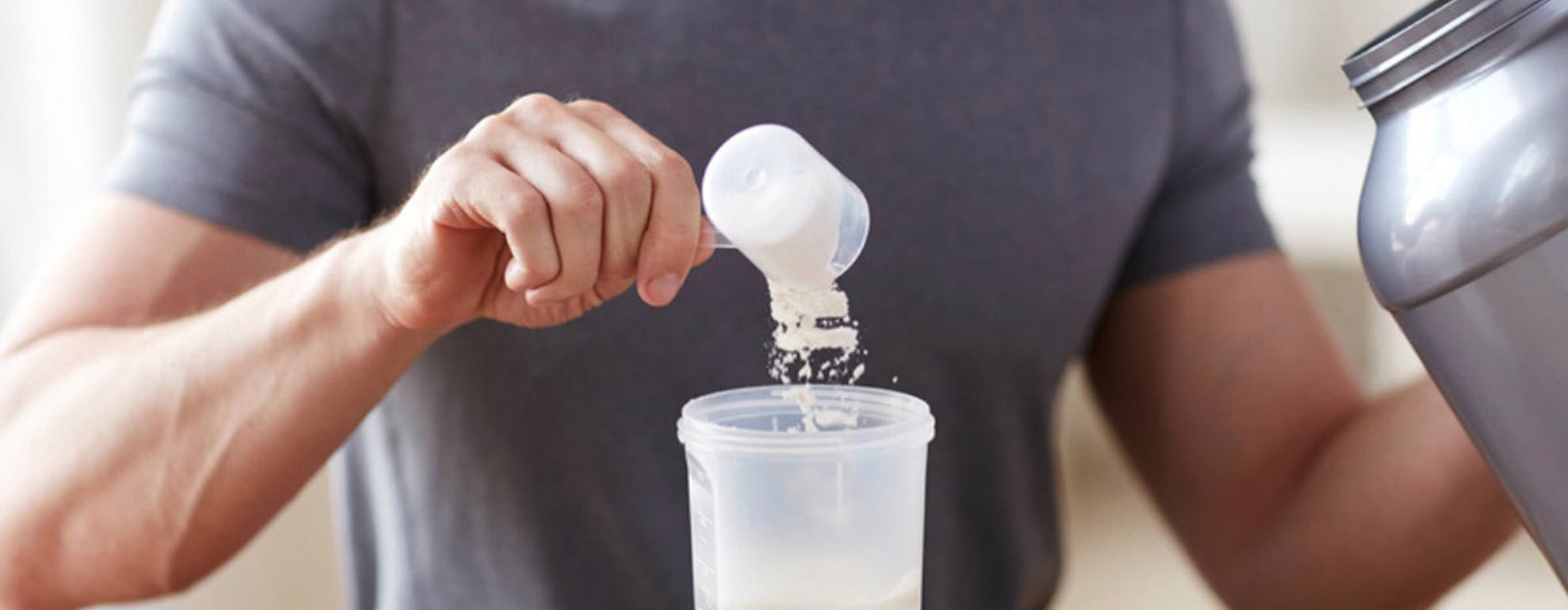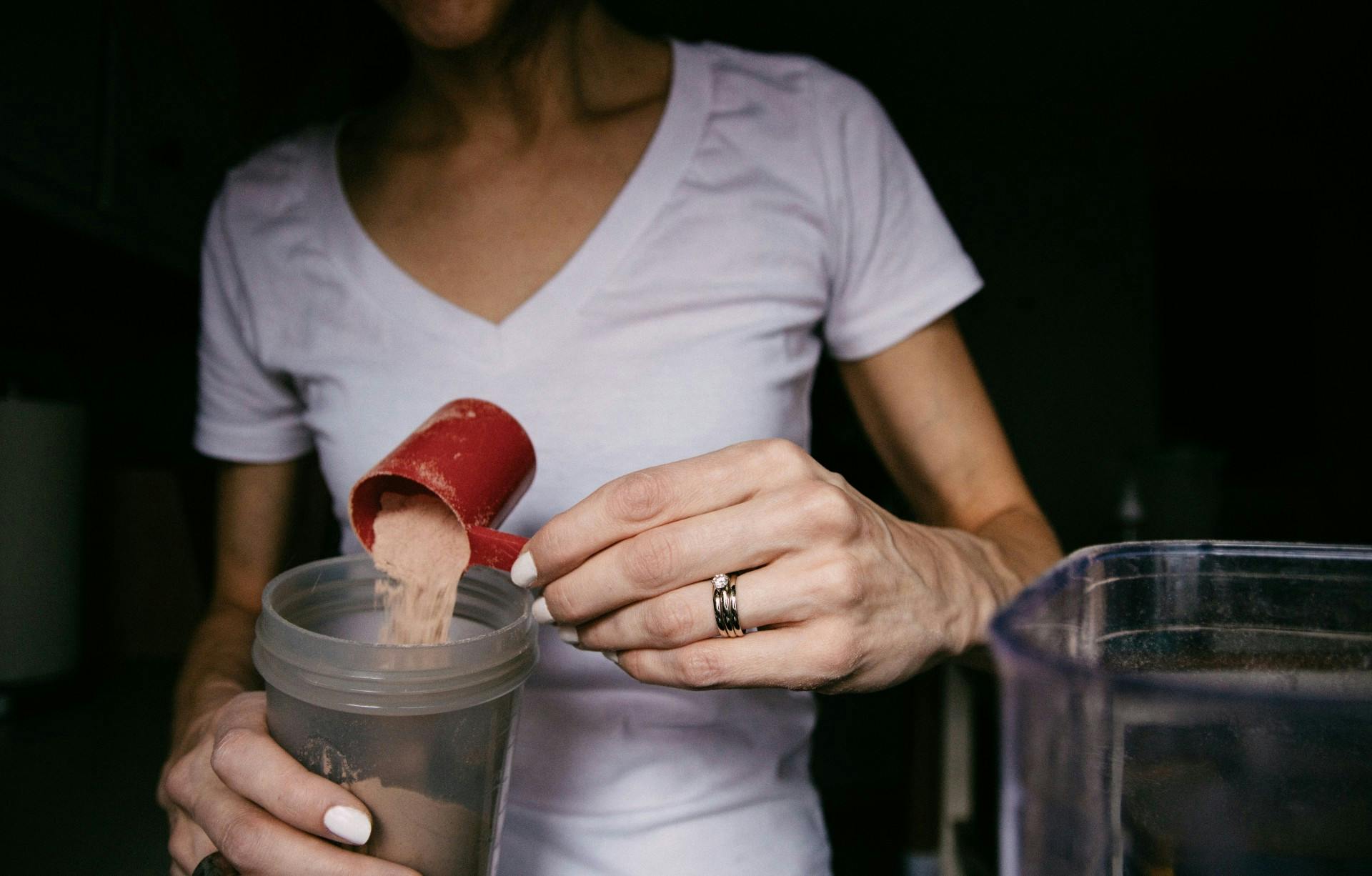
Nutrition
Do you need Protein Shakes for a Work Out?
Protein, it’s everywhere at the moment, the amount of ‘high protein’ snacks on the market has sky rocketed, everything from flapjacks, bites, yogurts, pancakes, porridge and more. But how much protein does the average on-the-go snack contain? How much do we need? And what about protein shakes, the holy grail of protein supplementation, are they absolutely necessary to ensure muscle gain?
SportsShoes has spoken to international track athlete and Nike and SportsShoes ambassador Risqat Fabunmi-Alade (@fabbyfabunmi) to find out.
ㅤ
WHAT IS PROTEIN AND WHY DO I NEED IT?
Protein is a macronutrient (alongside fats and carbohydrate) made up of amino acids, which are the building blocks of protein and essential structural components of body tissues such as muscle, hair, etc., and as enzymes and antibodies. There are 20 different amino acids, 9 of which can only be provided in the diet and are therefore ‘essential’ amino acids. The remaining amino acids don’t have to be found in the diet as they can be made by the body and are non-essential.
Protein is essential for growth & repair of the body and maintenance of good health. From a training perspective, insufficient protein can lead to decreases in muscle mass and functionality. Strength training causes a breakdown of protein in muscle tissue and for these tissues to recover and grow stronger proteins are needed to re-build. The amino acid leucine is particularly significant in stimulating protein synthesis.
It’s clear that the body needs protein, but how much? The Reference Nutrient Intake (RNI) is 0.75g of protein per kilogram of bodyweight for adults, this typically works out 45-50g per day but individual requirements vary – if you are a bigger person, particularly active or have a body composition with a higher muscle mass you will likely need more. Usually, per meal 20-30g per meal would be enough, although studies differ on just how much the body can absorb at any one time.
As well as improved strength and hypertrophy (muscle gain) adequate dietary protein can aid weight loss as it helps with satiety. Eating protein rich foods increases the amount of a hunger-fighting hormone called peptide YY which is good for curbing snacking.
Important as it is to get enough, protein myths and the rise of protein shakes often encourage people to consume higher quantities of protein (in the form of shakes) than what they actually need. Excess protein isn’t stored in the body which is why we need to consume it daily; food is broken down into amino acids in the stomach and absorbed in the small intestine, then the liver sorts out which amino acids the body needs. The rest is flushed out in our urine. You don’t want to waste your money on expensive protein powders & shakes that aren’t benefiting your goals.
ㅤ

Photo by Kelly Sikkema on Unsplash
ㅤ
WHAT ARE THE DIFFERENT TYPES OF PROTEIN SHAKES AVAILABLE?
There are numerous sources of protein powders available to make protein shakes with; popular ones include Whey, Casein and Pea (& other plant-based options such as soy, hemp, & brown rice protein). A recommended serving size is often one 30g scoop, which usually contains 20-26g of protein.
ㅤ
WHEY
Whey is the liquid scrapped off cheese during the production process. It sounds gross, but is actually an incredibly effective protein powder as it 65-70% protein, more than most plant-based powders and also contains more leucine (remember that super amino acid?). Luckily whey isolate has the milk sugar removed to make it better for those with lactate intolerance.
ㅤCASEIN
Again, Casein is a by-product of dairy but with a lower fat content, perfect for leaning out. Casein digests slower than whey, forming a thicker consistency in the stomach making you feel fuller for longer, as well as interrupting muscle breakdown so you can continue losing weight while retaining as much muscle as possible. Unfortunately, you might have to stay away if you struggle with dairy.
ㅤPEA
Another low-fat option, Pea protein is made by extracting the soluble protein from fibre-rich yellow split peas, making a vegan protein powder suitable for all and with no gassy side effects. Pea protein is pretty superior in comparison to other plant-based proteins due to its concentrations of leucine and lower fibre content (easier on the gut) although its light on complete amino acids so pair it up with other protein rich foods.
ㅤ
DO I NEED TO GET MY PROTEIN FROM A SHAKE?
There is a strong argument for protein supplementation is if you really are struggling to get an adequate supply from your food either if you struggle to eat enough, digest/absorb it or the demands of your body are too high. Any of these can result in a deficiency although true protein deficiency is rare in the western world, people do have low amounts in their diet.
Protein shakes are convenient but some protein powders don’t undergo as vigorous testing as others so can have ingredients you need chemistry bachelors to understand or that are just unnecessary. Store bought shakes are often loaded with sugar and not contain as much protein as you might think. Many protein supplements are also high in carbohydrates called FODMAPs that trigger digestive symptoms like bloating, gas and stomach pain! Not ideal.
Homemade options filled with nut butters, whole milk, bananas, oats, seeds, fruit and more can end up to 500 or more kcal, which may be fine when taken as a meal but for most of us, this is far too much for a post training ‘snack’ to be followed by a meal. Of course, you can make your shakes lighter, your powder of choice blended with almond milk (my favourite) is considerably lower in kcals. I recommend sticking to real whole foods where possible; nuts, seeds, single-serving Greek yogurt cups, canned tuna, cheese, jerky and hardboiled eggs, for instance, are as convenient as on-the-go as protein shakes and contain naturally occurring protein along with tons of other nutrients.
ㅤ
MY FAVOURITE HOMEMADE RECIPE – JUST BLEND AND GO!
1 scoop vanilla whey protein of choice (30g) (I use optimum nutrition golf standard whey)
1 scoop (use the protein scoop) oats
1 medium banana
1 flat TBS peanut butter (I like meridian or pip & nut)
300ml of Almond milk (I use Alpro unsweetened)
ㅤ
ㅤ
CONCLUSION
There’s nothing in protein shakes that you can’t get from food. The instances in which I recommend having protein shakes on a daily basis is
If you are short on time
On-the-go
Have behavioural barriers to eating whole foods
On a restrictive diet (vegan, vegetarian or similar)
If your protein targets are above average
If they fit into your daily nutrition and you like them!
Keen to learn more about fuelling for performance and adventures? Then check out our Nutrition category for more handy tips, advice and recipes.
Welcome
Welcome to the SportsShoes Nutrition Hub! We’ve teamed up with the experts to bring you the very best advice on the best foods to fuel you and your adventures.